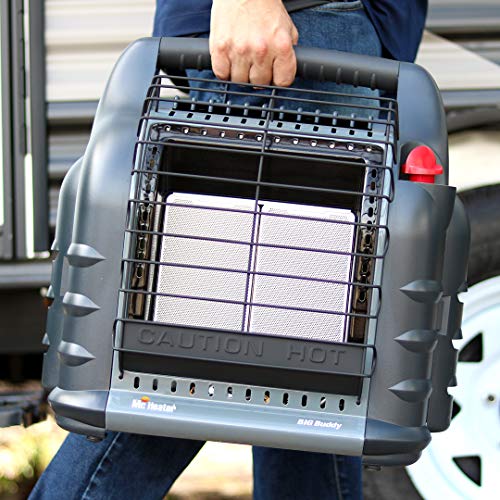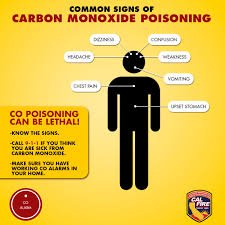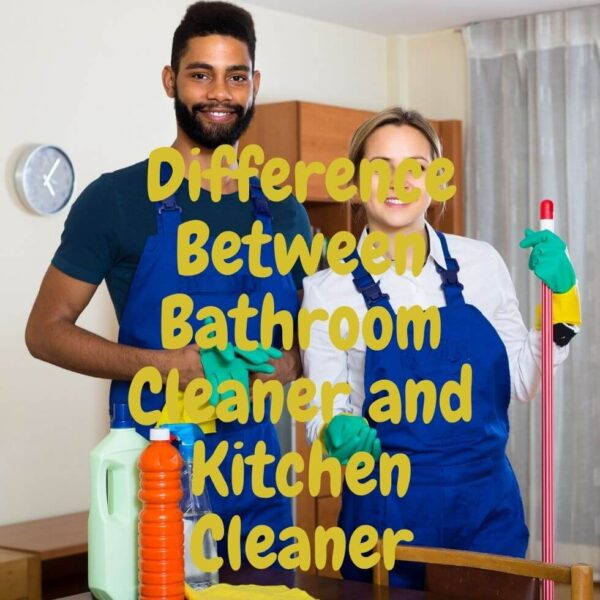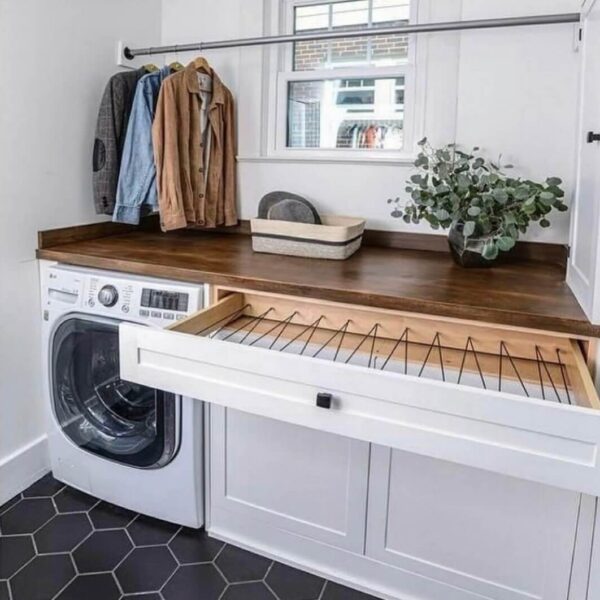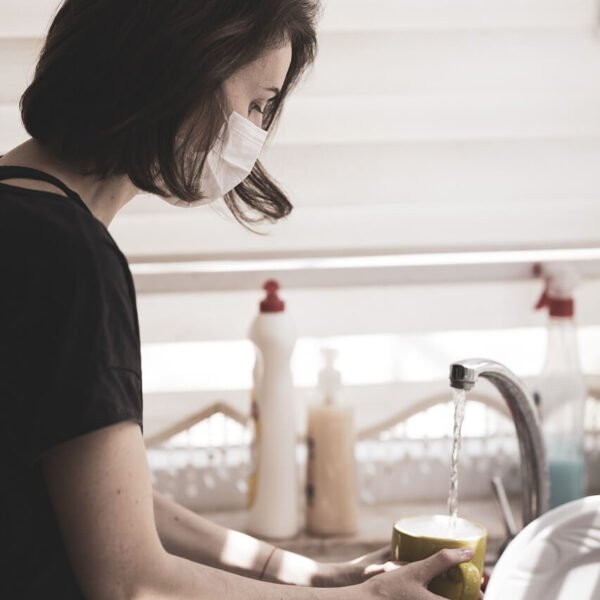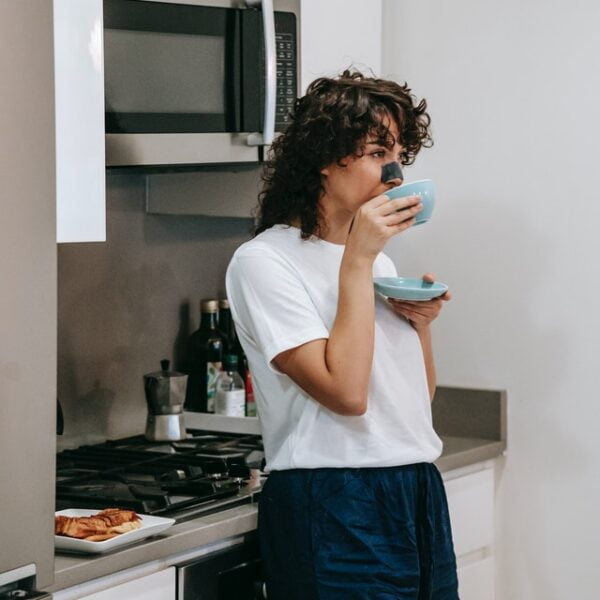Yes, you can use a propane stove indoors. It is safe to use a propane stove indoors if you allow adequate ventilation to remove unwanted smoke released from the burning gas to avoid carbon monoxide poisoning. Therefore, open your window, look for wear and damage, and ensure that the stove is checked annually by a professional.
Cooking has been made easy with the use of a propane stove. Apart from making cooking easy, a propane stove made it possible to enjoy cooking. Many people have today added cooking as one of their hubbies because of how easier and enjoyable propane stoves have made it be.
However, before using a propane stove indoors to cook, there are safety features you are supposed to know. These safety features are designed to ensure you don’t run into trouble using a propane stove inside your house.
It is true that a propane stove makes cooking easy and enjoyable owing to the fact that it gives you the opportunity to regulate the kind of heating needed for any particular food you’re cooking at a time, but it can be very dangerous if care is not taken. Therefore, this article will let you know how to use a propane stove indoors safely so that you can stop asking can you use propane stove indoors.
Table of Contents
Propane Stove
Propane stoves are one of the kitchen appliances used by people to prepare meals. It is mainly used for cooking. As reiterated earlier, a propane stove makes cooking very enjoyable and faster because of the steady flames pointed to the food until it’s done. You also get to adjust the flames however you want it to be depending on what you are cooking at a time.
If you are not using a propane stove yet and you are considering going for it for your new home, you have our support to go for it. It is a great way to cook food but you must ensure that all the safety tips are followed.
This is because propane stoves can be very dangerous if used without caution. It can lead to carbon monoxide poisoning which can be very fatal. As the propane heats and cooks your food, it releases polluted air in the kitchen or in the space where you are cooking. You are however expected to ensure that you let all this unwanted smoke out so you don’t fall sick from inhaling it.
Can You Use a Propane Stove Indoors?
You can use a propane stove indoors as long as you follow the safety ways of using propane stoves such as allowing enough ventilation in the kitchen by opening the kitchen window. You must also ensure that there is no wear or damage on the propane stove. If there is, call a professional to come to inspect and fix it.
Is it Safe to Use a Propane Stove Indoors?
It is safe to use a propane stove indoors only when you follow the safety means of using a propane stove. Therefore, for a propane stove to be safe indoors, you must allow enough ventilation in the space where the stove is being used either by opening the window or the door.
Using a propane stove indoors involves a lot of concentration and precaution which only those that are ready to concentrate and ensure that those precautions are taken should do. Those are the ones that are qualified to use a propane stove indoors. If you know you are not capable of acknowledging the safety means when using a propane stove, then do not buy. Now, here are how to make propane stove safe to be used indoors.
How to Use Propane Stove Indoors
Here are the safety tips that will make it safe to use a propane stove indoors:
1. Allow Enough Ventilation
When using a propane stove in your kitchen, ensure that enough ventilation is entering inside the kitchen. Many people have asked how much ventilation is enough for propane to avoid carbon monoxide? Well, the answer is enough ventilation that will dilute the air. Enough ventilation will enable the level of carbon monoxide in your kitchen not to be greater than the level of oxygen in the kitchen.
2. Open the Window or Door
If it is the window or your kitchen door that is comfortable to open, please open it. While enough ventilation is needed in an indoor space where a propane stove is being used, the best way to have enough fresh air inside the kitchen is either by the door or the window. So, open them. While the window is open, ensure that air is entering inside the kitchen. Opening a window may not stop carbon monoxide poisoning but can slow down carbon monoxide poisoning.
3. Install Exhaust Fan
You can decide to install an exhaust fan in your kitchen that can help with the airflow. There are several wall-mounted exhaust fans and other types of exhaust fans that can be installed in the kitchen. As long as the fan is installed and is on when the propane stove is in you, it will help with the carbon monoxide in the kitchen. If you don’t have money to get an exhaust fan, you can just open your window or door.
4. Ensure the Propane Stove is Off When not in Use
Once you are done cooking, please turn the propane stove valve off. This is very important. Make it a priority and never forget to turn it off when not in use. Make sure everything that has to do with the propane stove is off once you are done cooking to be on the safer side.
5. Keep The Propane Stove Far From The Reach of Your Children
If you have children that are always at home when you are away at work, ensure they don’t have access to the propane stove. If it is possible, lecture them on the danger of the stove and give them reasons that will deter them from touching the stove while you are away.
If it is possible, lock the kitchen. If your kitchen does not have a door. Find a way to lock the stove so it won’t work when your children decide to use it in your absence. This is because children sometimes do what their heart tells them. They sometimes do what they are told not to do not minding the consequences.
If you have a child who is older than the others or a little bit grown that helps you out in the kitchen, teach him or her how to use the stove. Lecture her on the safety tips as well. Do not let her use the stove alone until she has proven worthy of using it in your absence. Allow her to be using the stove while both of you cook in the kitchen until after a while when must have known everything about the stove.
6. Ensure there is not Wear or Damage on the Stove
While using a propane stove indoors, it is your responsibility to always check the stove for wear and damage. Always check for anything that can cause potential damage to the house or put the health of people in the house at risk.
Carefully look through the components of the stove to ensure that there is no cut anywhere. If there is a slight cut on the hose, or if the hose is old. Please change to a new one. The same goes for the other components.
7. Read The Manufacturer’s Manual
Often times we purchase a new product, we tend not to read the manufacturer’s manual that comes with the product because we feel we already know about the product we purchased. Most times, reading a manufacture’s manual can be very boring especially if they are written in another language.
However, do not try that with a propane stove. Once you purchase any propane stove whether from an online store like Amazon or from a physical shop, check if there is a manual that comes with the stove. Sit down and read every piece of information in the manual from beginning to end.
Reading the manufacture’s manual will help you know how to use the stove, what is required of you, what to look out for, and the safe ways to use the stove. Please ensure to read the manual. It is very important.
8. Install a Carbon Monoxide Detector
Since it’s already obvious that a propane stove produces carbon monoxide when heating your food, it is wise to install an appliance that can alert you should the carbon monoxide surpasses the oxygen level in your kitchen.
Installing a carbon monoxide detector is very important because carbon monoxide is a silent killer. It is a gas that kills without you knowing. Coupled with the fact that carbon monoxide does not have any smell, color, or taste, you are mandated to install something that will let you know when it is time to leave the house to avoid suffering from carbon monoxide poisoning.
9. Call a Professional to Inspect the Stove
It is better to call a professional to come to inspect your propane stove either annually or every six months to be on the safer side. At least the inspection will help ensure that you are using a safe propane stove. If there is an issue that needs to be fixed, the inspection time is the time to discover the issue and have them fixed.
Benefits of Using Propane Stove
- It makes cooking easier and faster
- It makes cooking cleaner with no black smoke
- It makes it possible for you to adjust the heat to the level you want
- Propane stove makes it possible to turn the stove off when, not in use
- It is easy to maintain
Dangers of Using a Propane Stove Indoors
- Carbon Monoxide Poisoning: A propane stove can cause carbon monoxide poisoning if there is no enough ventilation in the kitchen.
- Explosion: Sometimes, the tank that stores the fuel can explode for one reason or the other.
- Death: Carbon monoxide can lead to death if it is not taken care of immediately.
- Fire: A propane stove can cause a fire if it is left running with flammable things around. What if children are at home, it is not suitable where children are except the stove is in a restricted area where the children cannot reach.
Can Propane Stove Kill You?
Yes, a propane stove can kill you if there is no enough ventilation in the kitchen where the stove is being used. The carbon monoxide from the stove can lead to carbon monoxide poisoning and can silently kill you if you don’t allow fresh air into the room.
Final Thoughts
Propane stoves can be used indoors but can lead to carbon monoxide poisoning when used without enough ventilation. If you expose yourself too much to carbon monoxide, please visit a physician. If you are suspecting that there is a carbon monoxide leak in your house, you can call a fire department to come to check your home for carbon monoxide. You can also call any on-site air quality testing company to come to check your house for you. And if it’s an emergency, you can call 911.


